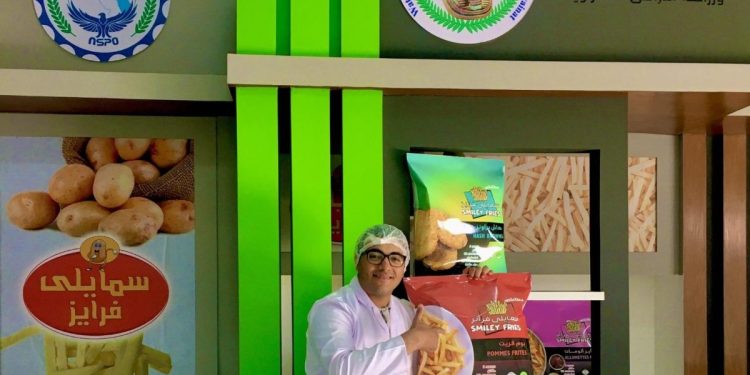#EgyptianAgriculture #FoodProduction #SustainableAgriculture #FoodSecurity #PotatoFactory #ColdStorageComplex #ClimateChange #PostHarvestLosses
President Abdel Fattah El-Sisi of Egypt recently inaugurated a new semi-fried potato factory and a complex of refrigerated warehouses designed to store potato seeds and tubers. With a capacity of 10 tons per hour and the ability to preserve up to 64,000 tons of potatoes, these facilities will serve local potato farms and support the wheat and potato harvest season in the East Owainat region.
Development: The inauguration of the new potato factory and cold storage complex is a significant milestone in Egypt’s agricultural sector. With the capacity to produce 10 tons of semi-fried potatoes per hour, the factory will create new job opportunities and boost the country’s food production capacity. The refrigerated warehouses, on the other hand, will help to preserve potato seeds and tubers, ensuring that farmers have access to high-quality inputs for their crops. This will ultimately result in better yields and higher profits for farmers, as well as increased food security for the country.
The new facilities are also a testament to Egypt’s commitment to sustainable agriculture. By investing in modern infrastructure and technology, the country is taking steps towards reducing post-harvest losses and minimizing food waste. This, in turn, will help to mitigate the impact of climate change on food systems and promote a more sustainable future.
Consequences of Development: The inauguration of the new potato factory and cold storage complex is expected to have a significant impact on Egypt’s economy and food security. By supporting local farmers and boosting food production, the country will be better equipped to meet the growing demand for food, both domestically and internationally. This will create new job opportunities and stimulate economic growth, ultimately benefiting the entire country.
Moreover, the investment in sustainable agriculture infrastructure will help to reduce the environmental impact of food production and promote more responsible resource use. As Egypt continues to face the challenges of climate change and population growth, these efforts are crucial for ensuring long-term food security and sustainability.







